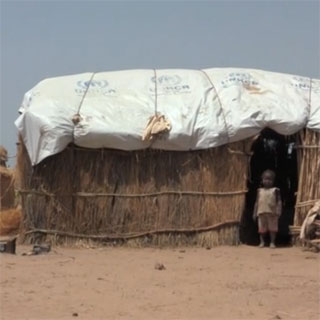
Editor's Note: This blogpost originally appeared on The Huffington Post.
Only two weeks after President Omar al-Bashir of Sudan decided at the last minute not to come to New York to address the UN General Assembly, his Interior Minister, Ibrahim Mahmoud Hamad, has decided to pay a visit to New York. As Interior Minister, one of Hamad's primary duties has been overseeing the brutal repression of the burgeoning anti-government Abena protest movement in Sudan's cities, in which over 200 have been killed and more than two thousand arrested.
But Hamad's role in supporting Darfur's destruction and preventing humanitarian access to those in need is perhaps the most objectionable part of his portfolio. Since the beginning of the year, over 500,000 Darfuris have been newly displaced in the context of Sudan government-supported militia attacks. The roots of this resurgence of violent tactics lie in the regime's desperate economic situation. Struggling to cope with the loss of oil revenue from South Sudan, Khartoum is attempting to consolidate control of any resource exports it can. Darfur has gold and other resources that can earn hard currency. So Interior Minister Hamad and other regime officials promote attacks on resource rich areas to drive less friendly populations off the land.
I recently traveled to the refugee camps in Chad that are teeming with Darfur's recently displaced. My traveling companions Omer Ismail, Gabriel Stauring, and James Thacher recently made this video focusing on the refugees' stories. The people we interviewed told us about how Ali Kosheib's Janjaweed forces attacked their villages. Now those same Janjaweed forces have been summoned to the center of the country to attack peaceful Abena protesters in Khartoum, Wad Madani, Omdurman and Bahri.
Ironically, Hamad has been invited to negotiate humanitarian access to areas in which his own government is using denial of aid as a weapon of war. And he is speaking at a seminar on "Strengthening the Resilience of Communities" while he's overseeing policies aimed at destroying the resilience of communities in Darfur, the Nuba Mountains, and elsewhere. The regime in which Hamad serves has ruled Sudan with an iron fist since its coup in 1989. It's time for a real peace process that can set forth the terms of peaceful democratic change. The Sudanese people are in the streets, resiliently calling for change.
That change is what Hamad's agenda should be going forward.

